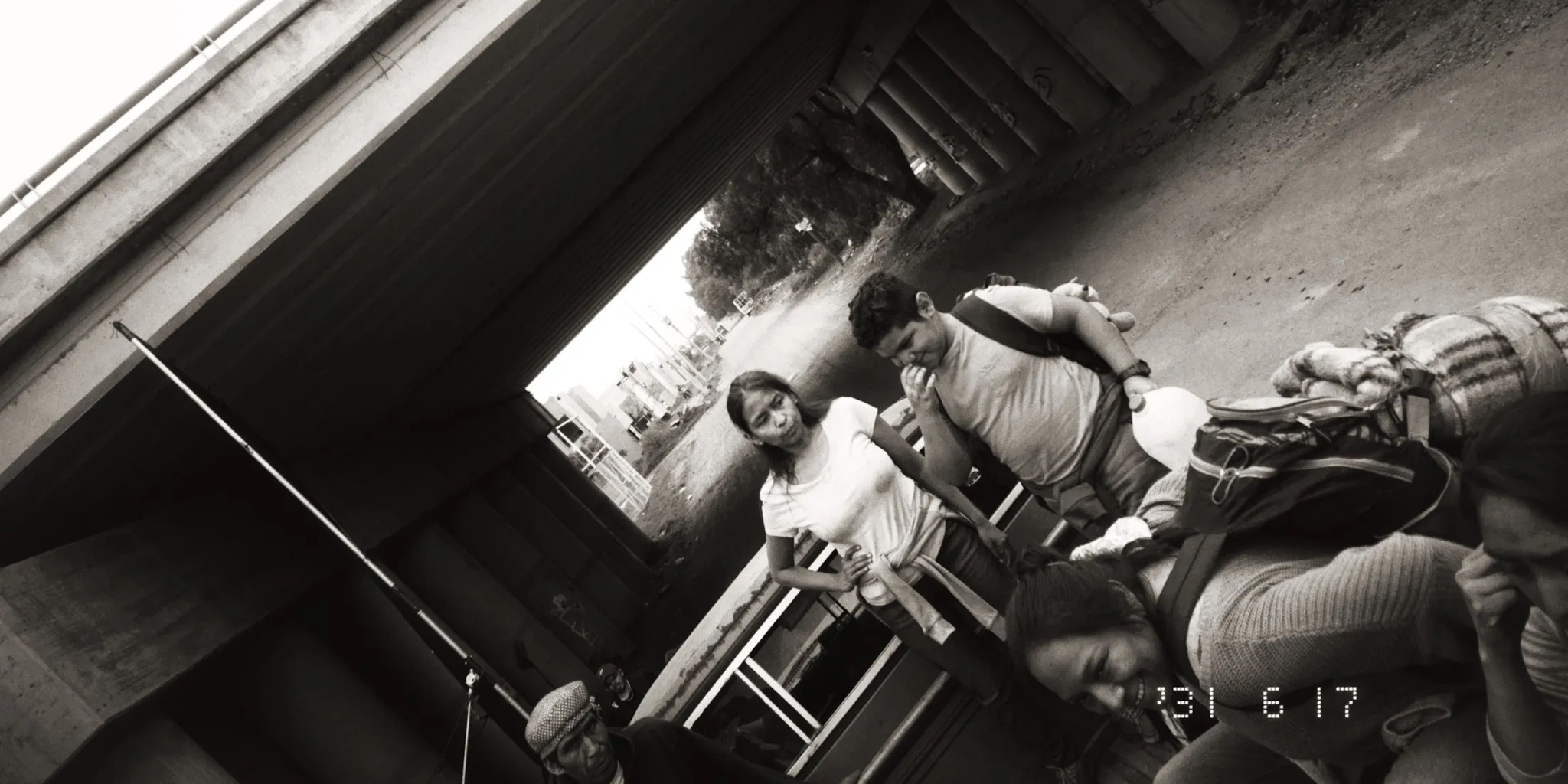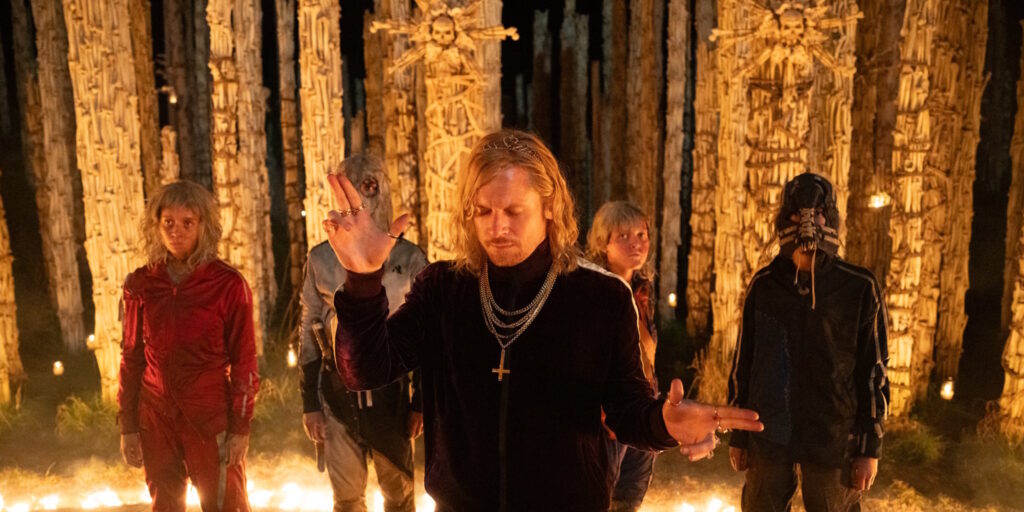The 60th Chicago International Film Festival comes to a close this Sunday. Before then, there’s a full weekend of programming that remains — including new films from Spanish filmmaker Jonás Trueba and prestigious documentarian Errol Morris.
“What will you compromise for ambition?” asks Errol Morris’s latest documentary, Separated, an exposé as blunt and to the point as its title. Focusing on the key figures responsible for carrying out one of the cruelest human-rights violations in modern history, the one posing the rhetorical is more deserving of interrogation than the question itself. That’s because the assemblage of talking heads and screenlife-style email correspondents that serve as Separated’s storytellers are — as one subject puts it — the most prolific child abusers in American history: North, South, or Central. It’s Morris’s second feature to focus on controversial Trump administration goings-on after 2018’s Stephen Bannon portrait, American Dharma, and, like that divisive doc, Separated is sure to split audiences for being too little, too soft, too late to matter.
Speaking over a pulsing beat and impassioned strings, interspersed between dramatic reenactments of one family’s journey toward the ill-reputed border wall, his interviewees — some decision-makers, others order-followers, and a select few rule-breakers — recount for the camera the sickening secret history of separations. All the names and faces you remember from press coverage at the time (Jeff Sessions, Stephen Miller, Kirstjen Nielsen, John Kelly) and many other lesser-knowns who exclusively worked behind closed doors (Scott Lloyd, for one) are here, as are the lower-ranked folks who tried to fight for change on behalf of the migrant children kept in cages who couldn’t fight for themselves. It’s nothing if not slick, both as a well-oiled work from one of the acknowledged masters of the contemporary American documentary and as a stump for various culpable individuals to explain their actions with no one person ever truly catching too much flak.
The past-tense title — suggesting the act of tearing children (many as young as infants) from their families at the U.S.-Mexico border is something that did happen under Trump, but no longer occurs under Biden — is a misnomer. Morris exposes former Presidents Bill Clinton, George Bush, and Barack Obama with tough-on-immigration sound bites at the start of the film, then devotes less than five minutes to the ongoing efforts to reunite families amid continued (and, for the record, even more rampant) deportations, returns, and expulsions at the border under the Biden administration. To implicitly suggest that family separations were strictly confined to the years 2016-20, waiting until — quite literally — the last minute to provide evidence to the contrary, is undoubtedly Morris’s most glaring mistake here.
Likewise the poor timing of the doc’s release, which won’t come until after Biden’s first and only term as commander in chief concludes and his successor is named. (And, as such, will have no swaying power in the 2024 election.) Not that it would have changed voters’ minds, undecided or otherwise. “Why should anyone care about anybody or anything?” argues one participant, defending the general public’s failure to maintain sustained outrage over the nation’s atrocities toward immigrants. It’s unwittingly a great point about Separated, a documentary that wastes too much time as an outlet to shirk responsibility and not enough as an urgent warning about the systematic hurt that continues to go on, hardly abated and never prophylactically treated since the transfer of power in January 2021.

After nearly 15 years together, filmmaker Ale (Itsaso Arana) and actor Alex (Vito Sanz) are calling their romantic relationship quits. As for why, the reason isn’t clear. As far as what’s next, they have no idea. All they do know for certain is that they’re through, and they’re going to throw a party with all their loved ones to celebrate. It’s something Ale’s dad (Fernando Trueba, real-life father of The Other Way Around director Jonás Trueba) has always talked about: Why not honor separations like we do unions? Call it an anti-wedding, a celebration of diminishing returns instead of many happy ones.
Ale is correct when she remarks in the opening scene that a breakup party is a sharp concept that would make for a good movie. There’s no need to include that big, stereotypical fight scene, that tearful moment where all is lost, that Oscar-vying monologue with pointed fingers and raised voices and a fist pounded through drywall. Trueba — along with Arana and Sanz, who, in another layer of self-referentiality, co-wrote the film with him — understands the passive dissociation that comes from a 14-year-long relationship that’s gone stagnant: You want to break up? You need space? That’s fine. No, really, it’s fine by me. What should we do about dinner, though?
There’s a definite remove, a certain distance between the characters and the audience, but it’s by design, not by accident. It’s all too easy to use metatextual elements as a crutch, a way for the filmmaker to let the viewer know they’re aware of a flaw before anyone can critique them for it. Such a defense mechanism is triggered in hopes of excusing the issue with a wink instead of actually putting in the work to get at the root of what’s wrong. This is precisely how Ale and Alex have hoped to break the news to their friends and family: from behind the protective shield of irony and clever disregard, showing that they’re so much smarter and more mature than those who try to make it work.
However, as with any work that leans on meta elements a little too forcefully, it’s obvious this façade has to fall eventually, leaving Ale and Alex standing perfectly framed between an open window like a silent-comedy gag. Where so many rom-coms about tying the knot result in the couple realizing they aren’t right for each other, The Other Way Around takes its “inverted marriage” idea and follows it all the way to the same big questions, albeit with an equal but opposite weight: Was this the wrong choice? Is it stupid to do this? Are they making a mistake? Its Spanish-language title, Volveréis, doesn’t reveal anything that isn’t present in the subtext, but that’s the true mark of a competent entry in this subgenre: the satisfaction of seeing a romance take an unfamiliar route that leads right where you hope it will lead.




